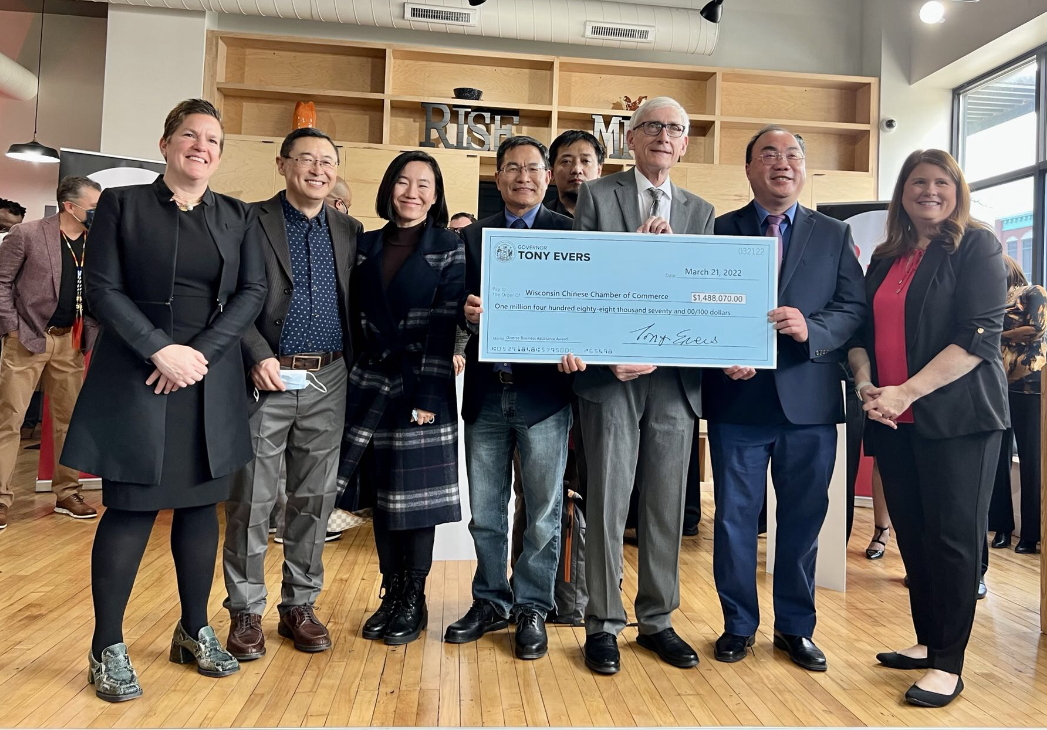Wisconsin attracts national startup funding conference
Milwaukee will be the location for the U.S. Department of Health and Human Services (HHS) 19th annual SBIR/STTR Conference in November. The conference, “In the Heartland of Biohealth Innovation,” will be held at the Hilton Milwaukee City Center Nov. 7-9, 2017.

“This is a great opportunity for Wisconsin entrepreneurs to connect with federal program managers and gain insight into how to best leverage the SBIR program to support the growth of their companies,” says Aaron Hagar, vice president of entrepreneurship and innovation with the Wisconsin Economic Development Corporation (WEDC). “We are looking forward to showcasing Wisconsin’s strengths to a national audience and to building partnerships and connections that will lead to future opportunities for our companies and communities.”
A win for Wisconsin
This will be the first time the annual conference has been held in Wisconsin. “This is a big win for Wisconsin entrepreneurs and researchers, as they will have a firsthand opportunity to learn from HHS experts about successful SBIR/STTR applications to commercialize their innovations, without having to travel outside the state,” says Kalpa Vithalani, licensing manager in the Office of Technology Development at the Medical College of Wisconsin and local conference chair.
The SBIR/STTR programs are highly competitive and encourage domestic small businesses (defined as companies with up to 500 employees) to increase private-sector commercialization of innovations derived from federal research and development funding. Through their awards, which can range from $75,000 up to $3 million, these programs enable small businesses to move from ideation to commercialization and stimulate high-tech innovation. This way, the U.S. fosters entrepreneurship while meeting its research and development needs.
Wisconsin small businesses are typically awarded dozens of SBIR/STTR grants totaling tens of millions of dollars annually, due in no small part to resources made available by UW-Extension’s Center for Technology Commercialization (CTC). Their expertise is invaluable in guiding businesses toward developing competitive applications, often aided by microgrants funded by the Wisconsin Economic Development Corporation (WEDC). SBIR awardees may also be eligible for SBIR Advance, a competitive program through which CTC provides additional business development services and WEDC contributes additional grant funding of up to $75,000 per company.
Hosted by the Clinical and Translational Science Institute of Southeast Wisconsin, the conference will help researchers and small businesses in the biohealth sector learn about the more than $920 million in funding that is available through the HHS annually for these grants. The HHS will fly 80 to 100 of its SBIR/STTR program managers from most of its institutes and centers to Milwaukee; HHS agencies represented include the Food and Drug Administration, the Centers for Disease Control and Prevention, the Administration for Community Living, the HHS Office of the Inspector General and the Office of the National Coordinator for Health Consultants. At the conference, researchers, innovators and business owners will be able to meet one on one with these HHS experts to discuss research and funding opportunities. Service providers such as lawyers and accountants will also be represented.
Who should attend
The conference is intended for university researchers interested in partnering with small businesses on R&D projects or in starting their own companies, as well as entrepreneurs and small businesses that are developing or planning to develop innovative technologies and products. Larger companies that are interested in developing strategic alliances with successful SBIR/STTR awardees can also benefit from attending and networking with the entrepreneurs and researchers to learn about innovative products and technologies that the larger companies may be interested in licensing and incorporating into their pipelines.
Although these grants are typically thought of as being for young companies and those that haven’t even been formed yet, many established companies also may be embarking on projects that would be eligible for this type of commercialization grant. Because of the HHS link, this conference will focus on biohealth innovations, including medical devices, diagnostics, digital health, biotechnology and pharmaceuticals.
“We strongly encourage Wisconsin researchers and entrepreneurs in these fields to take advantage of the conference being held here,” says Vithalani. “Attendees should come prepared with business cards and their best elevator pitch to succinctly explain what they plan to do, so they can quickly move on to discussing how they can best position their company to become an awardee through these grant programs.”






